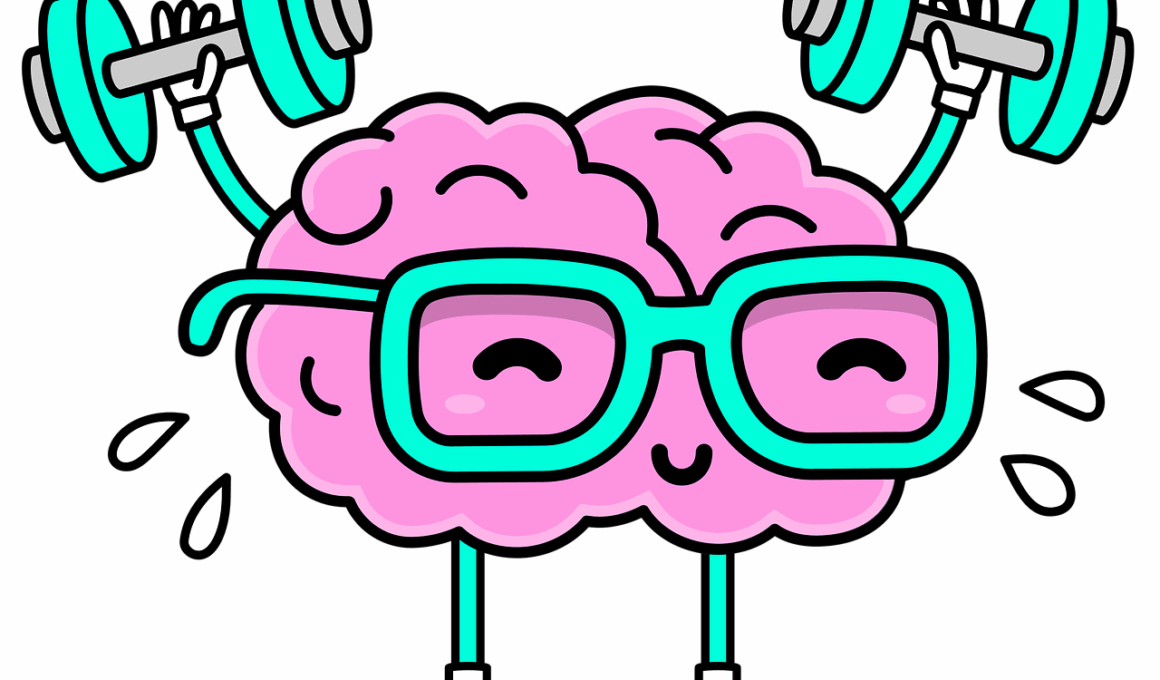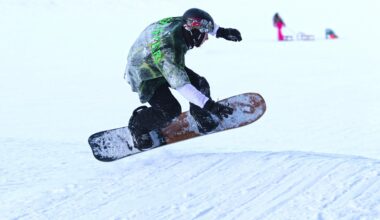How Simple Home Exercises Can Enhance Senior Brain Function
Engaging in regular physical activity is essential for seniors, particularly when it comes to enhancing cognitive function. Studies have shown that simple home exercises can significantly boost brain health and mental sharpness. For seniors, these activities do not have to be strenuous; rather, they can incorporate gentle stretches, balance exercises, and light strength training. Exercises that encourage blood flow improve oxygen to the brain, consequently supporting neural connections vital for cognitive processes. Simple routines can include activities such as leg lifts, seated marches, or even yoga which enhance flexibility while stimulating the mind. It’s crucial to create a daily exercise schedule, as consistency greatly contributes to the cognitive benefits that come from physical activity. Even short bursts of movement several times a day can be effective. Additionally, engaging in social exercises can also provide mental stimulation while fostering relationships, further enhancing brain health. Therefore, seniors should consider establishing an exercise routine that not only promotes physical well-being but also strengthens their intellect.
As we age, the importance of maintaining both physical and cognitive health becomes paramount. One way to achieve this is through the implementation of strength training exercises specifically designed for seniors. Activities like light weights or resistance bands can significantly enhance brain function by improving muscle strength and coordination, which in turn supports overall brain health. Working out with weights promotes the release of endorphins and hormones that can improve mood and cognitive clarity. Exercises that require coordination, such as alternate arm and leg movements, effectively activate different brain regions that manage memory and processing. Moreover, strength training can combat age-related muscle loss, enabling older adults to stay active and independent. To make these exercises more engaging, seniors can participate in community classes or online workouts focusing on strength training. This leads to not only physical improvements but also socialization, which is critical for cognitive health. The combination of muscle strengthening and social interactions during exercise provides a holistic approach to enhancing cognitive function.
Balance Exercises for Cognitive Improvement
Balance exercises play a crucial role in maintaining senior brain health and can significantly improve cognitive function. These exercises enhance stability while also requiring mental concentration, which stimulates brain activity. Activities such as standing on one leg or walking heel-to-toe can develop balance and improve core strength, which is vital for preventing falls. Incorporating tai chi, which emphasizes slow, controlled movements, can also be beneficial. Tai chi encourages mindfulness, making it not just a physical exercise but also a mental one. Such activities activate multiple brain areas that are crucial for spatial awareness and coordination. Therefore, when seniors practice their balance, they nurture their cognitive processes simultaneously. To create a conducive environment for these exercises, ensure that spaces are well-lit and free of clutter to minimize risks during practice. Additionally, consider using supportive equipment, like chair backs, until one feels stable enough to perform exercises independently. Balance training should be integrated into daily routines, creating habit formation that supports long-term cognitive enhancement.
Flexibility exercises are another important aspect of maintaining cognitive health in seniors. Engaging in stretching routines not only preserves mobility but also boosts blood circulation to the brain, which is vital for optimal function. Simple stretches can be incorporated into daily routines, targeting major muscle groups like the neck, back, and legs, promoting overall wellness. Flexibility is crucial for maintaining body movement, allowing seniors to engage in other forms of exercise safely. Incorporating activities like yoga or Pilates adds mental focus as they integrate breathing techniques and mindfulness, which can help reduce anxiety. These exercises require mental focus and physical engagement, thereby enhancing cognitive function through neuroplasticity, the brain’s ability to adapt and grow new connections. Practicing stretching alongside other types of exercises also helps to reduce the risk of injury, further contributing to sustained physical and mental activity. Seniors can create a personalized stretching plan, integrating it with light cardio and balance exercises for a balanced approach. Such routines can provide a well-rounded strategy for cognitive enhancement.
Incorporating Mindfulness into Exercise Routines
Mindfulness practices are excellent complements to exercise routines for seniors aiming to enhance cognitive function. Integrating mindfulness into physical activity helps promote mental clarity, emotional well-being, and overall focus. During workouts, seniors can practice mindfulness by concentrating on their breath, noticing bodily movements, and maintaining awareness of their surroundings. Mindful walking, yoga, and tai chi are great examples where movement and mental focus converge effectively. These exercises stimulate various brain areas responsible for memory, attention, and emotional regulation. Being present during exercise also minimizes the risk of distraction, thus improving safety. Additionally, practicing mindfulness can lead to reduced stress levels and anxiety, which are known barriers to effective cognitive function. Setting aside moments of stillness or short meditation sessions before or after workouts can also enhance the benefits. Seniors might contemplate engaging in nature walks, as these promote both physical activity and exposure to calming environments, boosting cognitive capacities. Mindfulness transcends the movement itself, fostering a holistic approach to both physical and mental fitness.
Group exercises can exponentially enhance cognitive function among seniors. Participating in group fitness classes creates an opportunity for social interaction, which is vital for mental engagement and emotional health. Being part of a community can alleviate feelings of isolation and improve overall well-being. Whether it’s a class focused on pilates, dance, or swimming, the interaction fosters a supportive atmosphere that encourages improvement and commitment to exercise. Additionally, incorporating games into group workouts stimulates cognitive processing and teamwork, effectively exercising both the body and brain. Exercises involving cooperative movements enhance communication skills among peers, further enriching cognitive development. Not only does exercising together spark motivation, but it also enhances learning experiences through sharing information and strategies. Furthermore, having an instructor can ensure proper technique, highlighting safety especially among seniors. With an emphasis on group dynamics, seniors stay mentally engaged while enjoying a shared experience that nurtures their cognitive function. Overall, integrative group exercises serve as an excellent avenue for holistic enhancement of mental and physical health.
Final Thoughts
In conclusion, it is vital for seniors to integrate simple home exercises into their routines to enhance cognitive function effectively. Engaging in physical activities such as balance training, strength exercises, flexibility workouts, and mindfulness practices nurtures brain health. The consistency of these exercises plays a key role, as regular engagement encourages neuroplasticity, which is essential for maintaining mental sharpness. Additionally, combining social exercises and group classes can amplify the cognitive benefits, offering a nurturing environment that promotes emotional support and motivation. By focusing on enjoyable and achievable routines, seniors can motivate themselves while enjoying the process of staying active. Furthermore, exercising at home provides the flexibility to tailor activities to their specific interests and abilities, encouraging continuous participation. Seniors should embrace a comprehensive approach that combines fitness and cognitive stimulation, ensuring a higher quality of life as they age. Prioritizing both physical and cognitive health will benefit their overall health long-term, leading to a more fulfilling and engaging lifestyle. Therefore, creating a sustainable routine that incorporates varied exercises will genuinely enrich their golden years.


